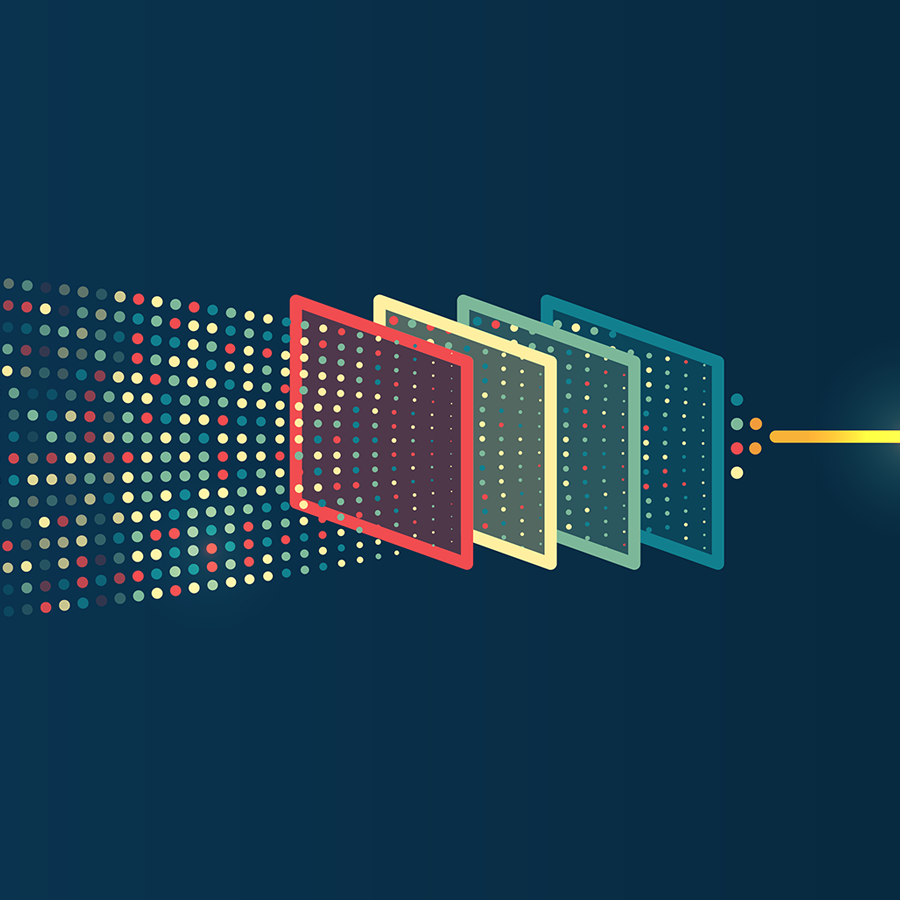
The Quest for the Golden Record
In 2023, 10 trillion gigabytes (or 10 zettabytes) of information are created every month. Today, our educational advancement organizations have access to more information about our constituents than we can use for our missions. Within our respective shops, we know where our constituents live, who they work for, when they clicked on our newsletters, what they donated to, and countless other pieces of information.
Yet because of data silos, poor data governance, and inconsistent data quality, we can struggle to deliver timely, data-inspired insights to our fundraising stakeholders and colleagues. If we are to fully leverage digital transformation within our shops to innovate new solutions, deliver value, and maximize our organizations’ impact, then we need a new approach that allows us to unlock the potential of our data. At the University of Chicago, we are finding that new approach through a practice called master data management. Master data management brings technology, processes, and people (in data and analytics and in advancement) together to ensure that our organization’s data are uniform, accurate, consistent, and stewarded.
Key Challenges to Unlocking Your Data’s Potential
To reach MDM, we had to assess the current state of our data and its constraints and consider the challenges ahead of us. These challenges include data silos, data quality, and data governance.
Within the education space, data silos are ubiquitous. In a 2021 study of data leaders at public research universities, respondents unanimously identified data silos as a barrier to generating insights and driving data-inspired decision-making. Within our institutions, these silos result in duplicative efforts that can lead to inconsistent constituent experiences—for example, a constituent receiving their alumni magazine with their preferred name, but later receiving a departmental newsletter with their deadname.
Even if we smash our data silos or bridge them through integrations, data quality in our educational institutions is another challenge to reckon with. Systems of record (such as human resources, career services, or enrollment management) may have data that are not complete, consistent, verified, valid, or timely. Different systems may use different standards, which can result in the delivery of erroneous insights. That can be detrimental when, for instance, our marketing and communications teams see high bounceback rates on an email communication or returned mail from a print mailing and question the reliability of our data.
Data silos and poor data quality are significant challenges, but they typically belie a larger problem: data governance. In this respect, data silos are symptomatic of a decentralized data governance culture where data “czars” are tightly focused on data access. The consistency of data quality between silos will reflect that department’s resources (time, talent, and budget), and shared data standards or resources such as data dictionaries will not exist.
These three data challenges mean our answers may not be as effective, timely, or efficient as we like when decision-makers at our institutions ask questions like, “What is the value of a degree from our department, school, or institution?” or “Who is responding to our engagement campaigns, and what do we know about them?”
A Golden Record
To truly unlock the potential of our advancement organization’s data, we need a golden record (aka a single source of truth or master data). The Data Management Association defines the golden record as “data about entities that provide context for transactions and analysis.” In a golden record, for any given constituent, we could have the following information:
- Donation history (Gift or pledge? Amount? Date? Which fund?)
- Household wealth (Net worth? Wealth valuations?)
- Event attendance (When? Where?)
- Email engagement (Which newsletter? Did they click? Did they open?)
- Contact information (Postal address, LinkedIn profile, email address, phone number)
- Relationships (Is their child a student? Who do they work for? Who do they know?)
To develop this golden record, we must embrace a new approach to managing our data. MDM allows us to reconcile and consolidate the data between our systems of record (the authoritative source) and our systems of engagement (a source of interactions), enabling a high-quality golden record easily shared across multiple systems.
MDM can come in two forms:
- Operational: focused on creating a single source of truth impacted by transactional activity and consumed by an organization’s core operations
- Analytical: focused on reconciling a single source of truth in supporting an organization’s decision-making

UChicago’s Quest
After 15 years of continuous use, UChicago Alumni Relations and Development realized that our legacy CRM system was increasingly unable to satisfy our efforts to support our fundraising goals. Further, we found our reporting and analytic capabilities lacking when it came to data external to our system of record. Often, we found ourselves asking:
- Why is it so hard to see constituent demographics and XYZ platform data at the same time?
- How long will it take to gather this data and clean it up into a digestible format?
- Why does it take so much effort to gather datasets and send them to our integration partners?
A primary driver of these questions was our inability to easily synthesize the data from our engagement systems (such as our online giving portal) and our CRM through our reporting and analytical platforms. We would have to manually intervene whenever we wanted to perform basic analyses on the usage or success of any of our engagement systems because they were data silos. Worse, we did not have explicit rules on how to categorize that data. There had to be a better way.
The Next Generation Fundraising Technology Project
In late 2018, UChicago Alumni Relations and Development sought to move away from our legacy CRM and entered a total technology transformation. This project aimed to prepare the university for its fundraising efforts in the next decade and beyond. Over a year, UChicago convened task forces, solicited consultants' advice, and requested vendor technology demonstrations.
We knew that upgrading to a new, off-the-shelf CRM would not satisfy all our analytics needs, especially if we wanted to work toward a true MDM model. Instead, we chose to pursue the Next Generation Fundraising Technology program, comprising three interrelated projects to be launched over the course of three years:
- Alumni and Friends portal (launched in September 2020)
- Phoenix Connection Center, a next generation fundraising CRM (launched in April 2023)
- Enterprise Data Hub platform, built alongside our new CRM (launched in April 2023)
The Benefits of the Enterprise Data Hub
Conceptually, an enterprise data hub has three layers:
- Acquisition—Retrieves data from both our systems of record and systems of engagement, storing the data in its raw format in a data lake.
- Semantic—Surfaces data specific to our organization from the data lake, applies our MDM rules, and transforms the data to our needs. This may include data cleansing, modeling, or aggregation, and the integration of additional data sets.
- Data Warehouse—Allows our reporting and analytical tools to easily retrieve data.
By embracing the enterprise data hub as part of our MDM efforts, we expect to reap the following benefits:
- Greater agility—We can report on and analyze formerly disparate datasets. We no longer need to pull data from multiple systems and manually stitch them together via non-centralized tools.
- More effective operations—We gained the ability to securely offer up golden data to our internal and external partners. Via application programming interface connections to our enterprise data hub, partners connect to integration-specific data marts, which means our team no longer needs to manually do regular data pulls.
- Better insights—Our now-unified analyses can be leveraged to make better business decisions. For example, by using data from our Phoenix Connection Center (CRM) and our Market Engage engagement platform in a single space, we can investigate future engagement rates relative to successes of email campaigns.
- Regulatory compliance—Having a consistent view allows us to audit our data while enabling controls to facilitate compliance with regulatory requirements such as the European Union’s General Data Protection Regulation or Section 117 of the United States’ Higher Education Act of 1965.

The Post-Launch Journey
So, where are we today? As of this writing (September 2023), we are five months into the launch of our Next Generation Fundraising Technology project. As with any technological deployment of this scale, we have had our share of growing pains. Our MDM efforts have focused on data quality and remediation, as well as codifying standards relative to our shifts in business processes from one fundraising system to another. Additionally, we discovered the unexpected ways in which data natively flow through these systems that we need to account for in our pursuit of a golden record.
MDM is a discipline within the constellation of practices that maintain or enable data within our educational advancement shops. It is not a set-it-and-forget-it process; our teams at UChicago Alumni Relations and Development are continually working to improve the governance, definition, architecture, and use of these tools. The journey may not be easy, but it is worth it to seek the golden record and unlock the potential of our data to reach our fundraising and engagement goals.
This article is based on a presentation by Christopher Amherst and Patrick LaRocco, along with Joseph Lanasa of Advance Data Strategy, at CASE DRIVE in March 2023. DRIVE is a conference that provides focused learning and networking opportunities for those who work with data and analytics within their advancement teams. DRIVE 2024 will be in Washington, D.C., on March 25 – 27.
About the author(s)
Christopher Amherst is Director, Data Management at the University of Chicago, Alumni Relations and Development.
Patrick LaRocco is Director of Analytics and Business Intelligence at the University of Chicago, Alumni Relations and Development.
Tags
Article appears in:

November - December 2023
DIGITAL ONLY ISSUE - How to achieve the "golden record" with master data management. Plus, how to engage pandemic-era graduates, match making alumni mentors and student mentees, and chatting about ChatGPT.
